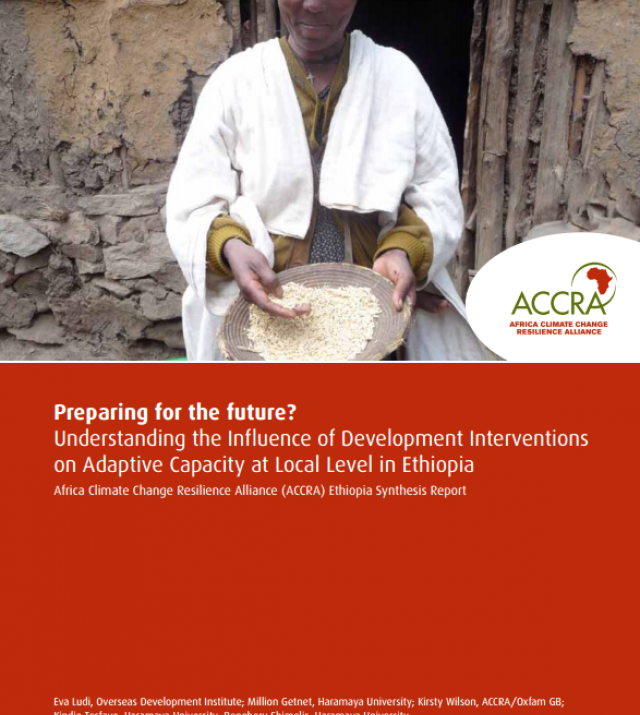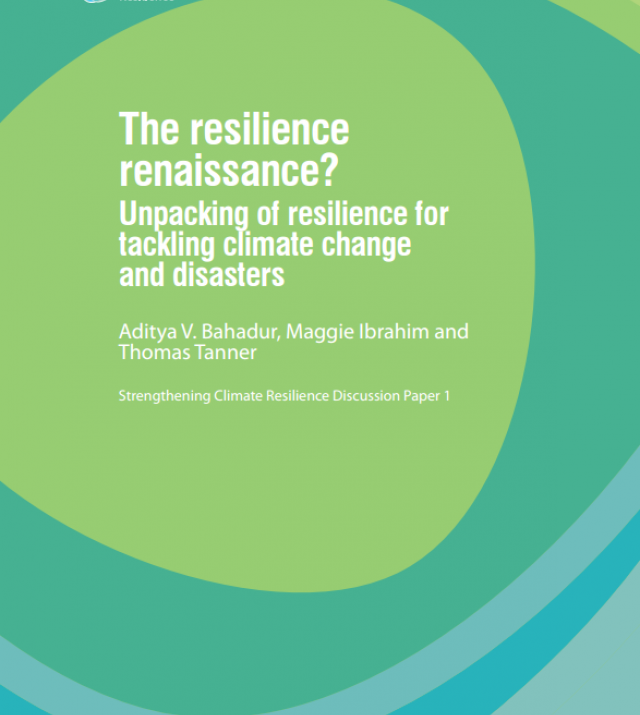
Rethinking Support for Adaptive Capacity to Climate Change: The Role of Development Interventions

Change is a constant in the lives of rural people in Africa. For most developing countries, climate change adds another layer of complexity to existing development challenges, such as high levels of poverty and inequality, rapid population growth, underdeveloped markets, poor infrastructure and service provision, and weak governance systems. Development interventions will need to help people and communities to adapt to the interaction of these new and old pressures. Since change is a constant, sustainable interventions can only be achieved if people can adapt them in the future to a changing context.
Adaptive capacity is understood as the ability of individuals and communities to anticipate, deal with and respond to change – both changing climate and development pressures – while maintaining (or improving) their wellbeing. Adaptive capacity refers to the potential of individuals and societies to respond to change, so it is not currently possible to measure it directly. ACCRA therefore focused on five dimensions that are considered to contribute to adaptive capacity: the asset base (including physical and non-physical assets), institutions and entitlements, knowledge and information, innovation, and flexible forward-looking decision-making and governance.
The rapid rise in warming of the Earth’s surface over the last half-century is well accepted, and there is general scientific acknowledgement that this has been caused largely by human activity. Although there is rapidly increasing understanding of how the climate is likely to change at the global scale under various emissions scenarios, what is less well understood is the exact magnitude of future temperature and rainfall changes at the local level, and how these are influencing bio-physical systems.
In order to understand the impact of climate change at the local level, it is important to recognise the interactions between climate change and wider development pressures. People adapt to the impact of climate change on wider development processes, such as rising food prices, the spread of disease and illness, and competition over natural resources. The impacts of climate change will not be the same for all.

